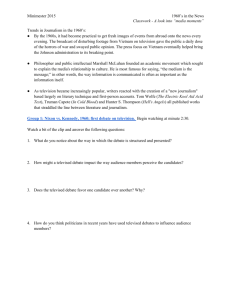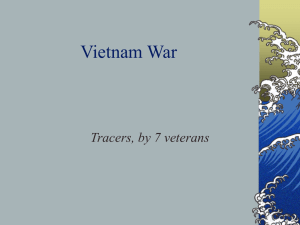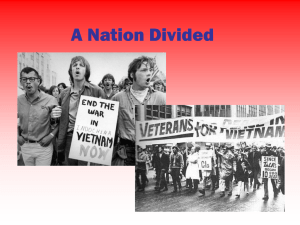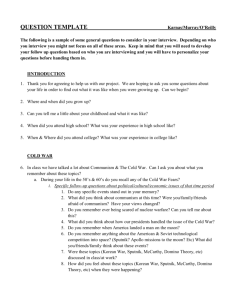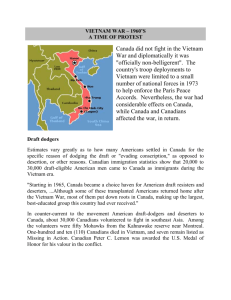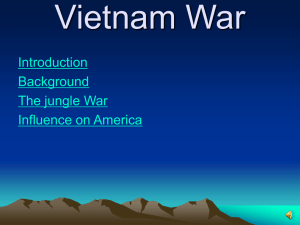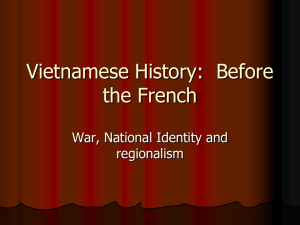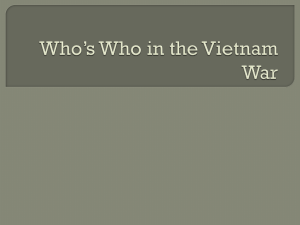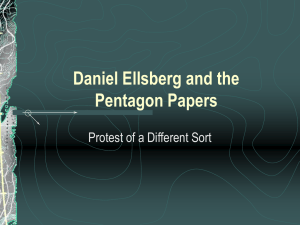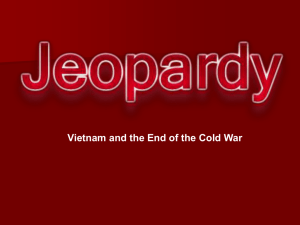Document
advertisement
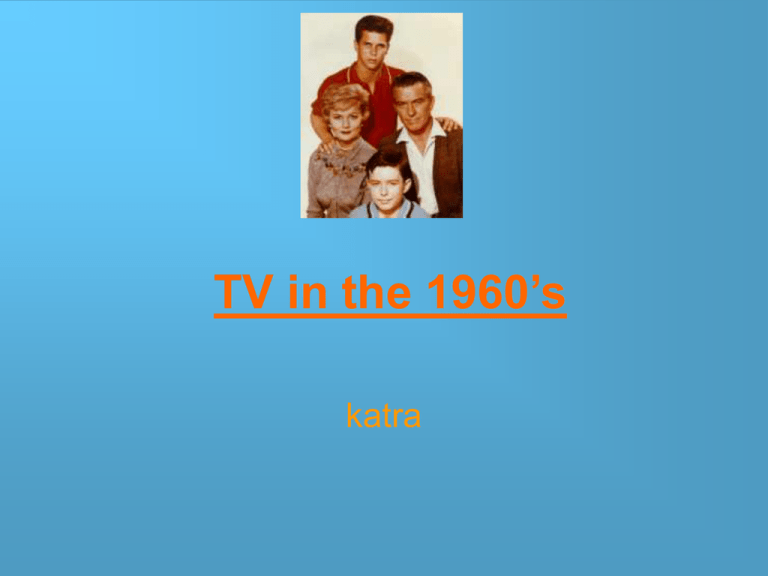
TV in the 1960’s katra Effect on Culture • Television was one of the major driving forces in shaping US life in the 60’s. • Ideals of the time were reflected in TV shows and as those ideals changed drastically, so did television. • Television soon became the most popular media- 80% of households owned a T.V. • Parallel to reflecting, TV also fed the public new ideas, and the public changed accordingly. TV’s Popularity Starting around 1969, I had "long" hair. I watched a LOT of TV -- and since there were only 3 channels, I basically could watch everything. Each summer I looked forward excitedly to the new TV season and the new shows. -Kurt Globalization and Growing Impact • Television first really went global with the 1962 launch of Telestar. • 1969 720 million people around the globe tuned in to watch live as Neil Armstrong first walked the moon. • Late 1960’s media chose to cover new styles/events like the Summer of Love. • As the culture continued to change, media started to sell “rebellion” and “revolution”. Culture On the cultural front, you had the Beatniks in the 50's but they were a tiny tiny group. The Beatles/hippie phenomenon took that nonconformist feeling and spread it to millions of young people, myself included and probably even to some of the Cub Scouts and Brownies of that time. -Peter Current Events • The Cold War hurried • In 1960 presidential in a period known as debates were aired for “Spy TV” the first time. • Vietnam War caused • The Kennedy TV to loose a grip on assassination was a it’s unifying effect. major historical point in TV. • Near the end of the war media had become • Ad’s like President part of the Johnson's “Daisy Girl” controversy. described as a sign of TV’s power. Vietnam I was always pro civil rights. That's where it started for most of us. Then the Vietnam War sort of snuck up on us on t.v. every night and it was an even stupider war than most (and they are all basically stupid). So I suppose what happened was, we all grew up in the 50's with this idea that the U.S. always supported right and equality and peace and then civil rights and Vietnam both appeared as big fat contradictions. -Peter Clip Vietnam The media reported a great deal on the Vietnam War as the American military commitment there got large, starting in 1967 and 1968 -- as did the antiwar protests. And far more than the current war in Afghanistan, for instance, there were dramatic frontline battlefield film reports on the network news shows. Summary • From the late 50's to the early 70's, it's easy to see how TV's power as a medium increased. • It was pivotal in turning the American public against the Vietnam War. It added a crucial new aspect to political campaigns, and almost decided for the public what was "hip". Bibliography • The 60’s in America, vol.2, Media. • www.nhmccd.edu/contracts/irc/kc/decade60.html#film Kingwood College Library • www.engl.virginia.edu/courses/enwr101/s97/26/fihalpro/ttt final/html - Television • www.pbs.org/wgbn/amex/techonology/bigdream/milestone s2.html#1960 - TV Milestones. • http://www.wnyc.org/studio360/kurt.html- Studio 360 • http://people.clemson.edu/~pammack/lec122/vietnam.gif • http://asia.cnn.com/SPECIALS/2000/vietnam/story/vietna m.today/vietnam.war.jpg TV was and still is today, a way to get something shown, and near endless methods of doing it. The End What is your greatest memory about life in the 1960's? The sense that society and culture were excitingly in transition. -Kurt
